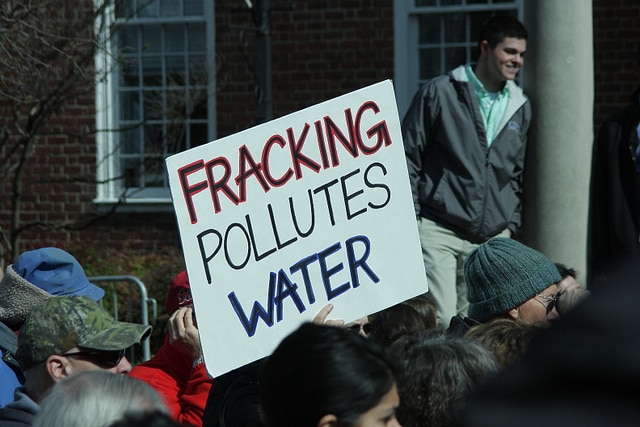Chemicals released into the air and water during fracking operations may result in human health problems ranging from birth defects to decreased semen quality, a U.S study has found.
University of Missouri researcher Susan Nagel and colleagues from the Institute for Health and the Environment and the Center for Environmental Health conducted the most extensive review to date of research on fracking by-products and effects on human reproductive and environmental health. They concluded that exposure to chemicals used in fracking may be harmful to human health.
The paper, Reproductive and Developmental Effects of Chemicals Associated with Unconventional Oil and Natural Gas Operations, published in the peer-reviewed journal Reviews on Environmental Health recommends further study.
“We examined more than 150 peer-reviewed studies reporting on the effects of chemicals used in unconventional oil and gas operations and found evidence to suggest there is cause for concern for human health,” Nagel said.
“Further, we found that previous studies suggest that adult and early life exposure to chemicals associated with unconventional oil and gas operations can result in adverse reproductive health and developmental defects in humans.”
Fracking, or hydraulic fracturing by pressurized liquid, is used to release natural gas from underground rock. A high pressure fluid, usually made up of chemicals and sand suspended in water, is injected into deep rock formations to create cracks, making vast caches of natural gas, previously trapped in buried rock, accessible.
Over the last decade, as the practice has become more common in Canada and the U.S., concerns have grown about contamination of ground water, depletion of fresh water, air quality, gas blowouts and the possibility that fracking will trigger earthquakes.
In north eastern B.C., where there are vast reserves of shale gas, controversy has raged and the use of river and lake water for fracking has been challenged in the B.C. Supreme Court by a coalition of environmental groups.
The University of Missouri-led study looked at previous research on air and water near fracking operations and concluded that exposure to fracking-caused pollution may be linked to health problems in humans and animals, including infertility, miscarriage, impaired fetal growth, birth defects and reduced semen quality.
“There are far fewer human studies than animal studies, however, taken together, the studies did show that humans can be harmed by these chemicals released from fracking,” said Nagel, an associate professor of obstetrics, gynecology and women’s health at the University of Missouri School of Medicine.
“There is a striking need for continued research on unconventional oil and gas processes and chemicals and the health outcomes in people.”
Subscribe to our newsletter
Stay up to date with DeSmog news and alerts






